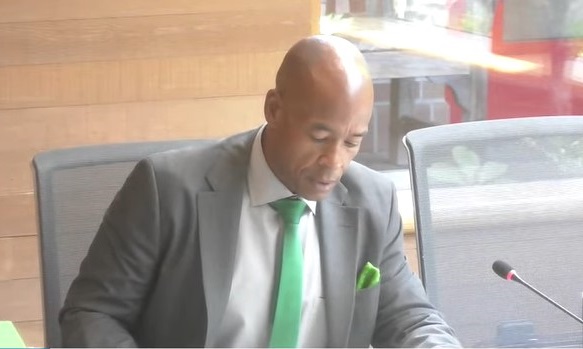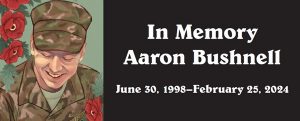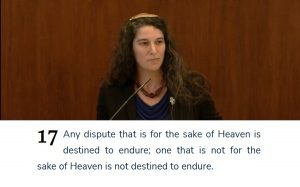LTD adopts mobility management strategy
4 min read
The LTD board on June 21 approved the proposed mobility management strategy. It’s an agile approach to transportation planning, with iterative pilot projects.
Andrew Martin (LTD planner): …Fixed route service is the backbone of what LTD does, right? It’s where currently most of our money goes. That’s where most of our ridership is. A lot of other services complement fixed route, and I think that that’s how we’re going to have to think about mobility management in the future. It’s not getting away from fixed route, it’s doing things that complement and build on the existing investment in fixed route transit that we currently provide.
[00:00:34] Piloting projects is going to be really important for us to be successful. A lot of these things are new to us, new to our area, and so we want to make sure we’re getting it right. We want to make sure we’re using our taxpayer money effectively, but also that we’re serving our community the way that they want to be served.
[00:00:48] And with that, piloting projects, making sure we’re doing a good job, iterating, trying new things, and improving, again, that’s going to be really important.
[00:00:56] And we’ve developed a Guide to Running Pilots just because of the need to do that effectively. We’ve developed what we call a decision-making framework, which is really a way for staff to have a structured conversation and get at what roles we should be playing and what partners we need to bring to the table to deliver some of these things.
[00:01:15] We have our Guide to Running Pilots. We have a whole bunch of technical memos that have information that’s really great for staff as we’re trying to implement this work. The public’s welcome to look at it, but it’s pretty dense. You have to be very interested. We’ll get it online though, and then also we’re starting a mobility management task force.
[00:01:34] Jameson Auten (LTD CEO): I think this is a really good conversation. A lot of transit systems since 2015-16 have implemented pilot programs in a way where there hasn’t been a structured framework to really understand what we’re trying to solve for, to understan, what we’re layering over, and to also understand how communities would really use them. So I think this is really important for us to not rush headlong into something right away, but to really be thoughtful in how we do it…
[00:02:05] Case in point: Down in College Grove, we’re doing the Mobility on Demand pilot there. We went down and when we met with the folks down at College Grove, we learned that a lot of the trips were being booked through the call center. Why is that? Well, we have an idea. Maybe it’s the phone type or the passenger profile or it could be lack of Wi-Fi in certain areas.
[00:02:26] So there are things that you can layer on to that pilot itself in understanding what the impact of providing these would be. And we certainly could search out willing partners to provide the hardware.
[00:02:38] …But we really want to focus on some of our rural placements because that’s a lot of our service area.
[00:02:44] So while we do the due diligence on the studies to understand how people are interacting with our services today, we’re also going to be looking at how do we sprinkle in pilots, to understand how they’ll be using them in that meantime as well. I think that’s important and we’ve been doing that.
[00:03:02] And we have quite a bit of data already just based on the services that we have running today, that exist today. So I wanted to point that out as well. This is a key part in the opportunity for answering the question of what our communities need us to be. This is a key part to that, and I think walking down this path in a structured way, but not in the way where we’re going to let the perfect get in the way of the good in all cases, is the way that we need to proceed.
[00:03:28] We’ll be building this along with our Community Outreach and Communications Assessment project that we’re doing. I’m trying not to use COCA. We use that all the time. I’m trying not to use the acronym.
[00:03:38] We’re putting together, you’ll recall, a steering committee that’s made up of external community members to guide that process. Staff will serve as a resource. So now we’re starting to solicit for steering committee members.
[00:03:51] The community outreach and communications assessment will be the foundation for how we engage. But this mobility management strategy will be the strategy for what we choose to engage with, what type of service model based on those communities.
[00:04:08] Susan Cox (LTD board vice president): I would just like to say that I appreciated recently, John (Ahlen), what you put together with Mobility International and really talked about how this is a global initiative and it was really it was very inspiring to see how people in other countries really were taking this seriously and looking to LTD as a model… And again, John, I want to congratulate you on what a great job you did with facilitating and organizing that meeting.
[00:04:36] John Ahlen (LTD): Thank you so much for the kind words.
[00:04:38] John Q: The LTD board approves the mobility management strategy, which will run iterative pilot projects in rural areas. Learn more about the community steering council, which will hold six meetings this fall, and apply at LTD.org/COCA.




